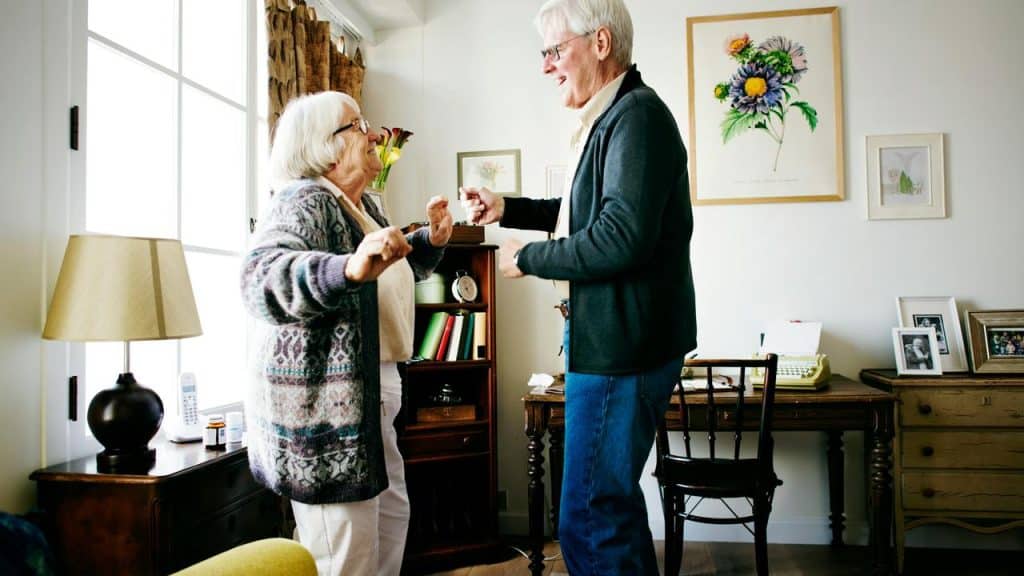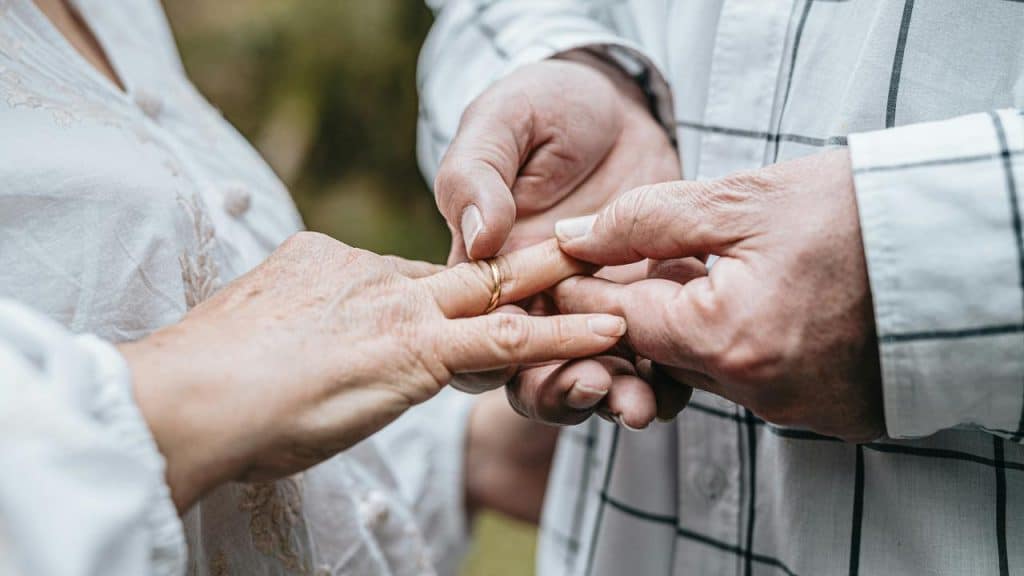
Marriage today looks different than it did for our parents and grandparents, but that doesn’t mean there isn’t something we can learn from how they did it. The way couples used to handle love, loyalty, and life together had a certain grit that kept them from walking away at the first sign of trouble. These raw truths might not be romantic in the Hollywood sense, but they worked, and they made marriages last decades, not just a handful of years.
Let’s break down the unpolished truths that gave old-school marriages their staying power.
1. Divorce Wasn’t the First Option

Back then, people didn’t treat marriage like a trial run. They went in knowing it was supposed to be permanent, which meant when problems popped up, the knee-jerk reaction wasn’t to split. They worked through arguments and disappointments because the idea of walking away felt heavier than sticking it out.
That didn’t mean couples never thought about leaving, but it wasn’t the default answer. They saw divorce as a last resort, and that mindset pushed them to actually solve problems instead of throwing in the towel.
2. They Took Their Vows Seriously

When someone said “for better or worse,” it wasn’t just a pretty phrase to make the ceremony sound poetic. Couples believed those words tied them together, no matter what life threw at them. Those vows weren’t recited casually. They were taken as a binding promise.
It gave both partners a deep sense of accountability. If you promised in front of God, family, and community that you’d stand by your spouse, you did your damnedest to live up to it.
3. Pride Wasn’t Allowed to Run the Show

Old-school marriages had their fair share of clashes, but pride didn’t get to dictate every fight. Husbands and wives understood that swallowing your pride once in a while would make the marriage stronger.
Instead of needing to be right every time, they focused on what kept the peace. That willingness to bend without breaking kept couples from turning small issues into permanent scars.
4. Money Wasn’t Seen as a Solo Thing

Finances weren’t treated like “his” money or “her” money. The couple’s income, no matter how big or small, went into one household pot. It created unity because both partners saw themselves as a team working toward the same financial future.
Even if one spouse stayed home and the other worked, there wasn’t constant bickering about who “earned more.” They understood that every role in the marriage contributed to survival.
5. Patience Was Really a Virtue

People didn’t expect instant results in marriage. Couples knew there would be long stretches of stress, sacrifice, and even boredom, and they didn’t panic when things got dull. Patience was baked into the marriage because waiting for better times was part of the deal.
Whether it was dealing with slow financial growth, long hours at work, or raising a handful of kids, they leaned on patience instead of throwing up their hands in frustration.
6. They Believed in Respecting Roles

In many old-school households, roles were clearly defined. The husband often took on the breadwinner role, while the wife managed the home and kids. It wasn’t about who had the harder job. It was about recognizing that both jobs mattered.
That respect kept things from turning into power struggles. Each partner knew the other was holding up their end, and that mutual acknowledgment created balance.
7. Family Pressure Kept Them in Check

Nobody wanted to go back home and tell their mom and dad they couldn’t make their marriage work. That family pressure might sound harsh, but it motivated couples to fight harder for their relationship. Divorce was something the whole family would actually talk about.
It created a sense of accountability beyond the couple. When you knew your family and even your community expected you to stick it out, you gave more effort than you would’ve otherwise.
8. Religion Played a Huge Role

For many couples back then, religion was woven into their daily lives, and that shaped how marriages were handled. Couples prayed together, sought advice from pastors, and leaned on their faith when things got rocky.
Believing their union was sacred made it harder to give up on it. To them, religion was the glue that reminded them that marriage was bigger than just two people living under one roof.
9. They Knew Hard Work Came With the Package

Nobody believed marriage was supposed to be easy all the time. They knew there would be arguments, disappointments, and challenges, but they accepted that as part of the deal. Complaining didn’t fix anything, but rolling up your sleeves and putting in the work did.
That mindset kept people from romanticizing marriage into something it wasn’t. They understood that anything worth keeping required effort, and marriage was no different.
10. Kids Weren’t Used as Bargaining Chips

Even when couples argued, they didn’t use their children as leverage. Raising kids was a shared mission, and both partners took it seriously. No one played games with custody threats or used the kids to score points in disagreements.
Children grew up with stability because their parents protected them from marital conflicts. That made the household feel secure, even if things behind the scenes weren’t perfect.
11. Loyalty Was Non-Negotiable

Cheating wasn’t excused as “just a mistake.” It was seen as a betrayal that could ruin everything. Couples took loyalty seriously, and most people didn’t want to risk their family or reputation over temptation.
That loyalty built trust. When you didn’t have to question your partner’s commitment every time they left the house, the relationship had a stronger foundation.
12. Privacy Stayed Inside the House

Couples didn’t air out their dirty laundry to friends, neighbors, or social media. If you had issues, you hashed them out inside your own home. That kept outside opinions from stirring up more trouble than necessary.
By keeping personal matters private, couples maintained control over their marriage. Outsiders couldn’t plant doubts or add fuel to arguments, which made it easier to resolve things directly.
13. Gratitude Was Practiced Daily

A simple thank you went a long way. Whether it was a home-cooked meal, a paycheck, or help with the kids, gratitude was a daily ritual in old-school marriages. Couples noticed the small efforts and made sure to acknowledge them.
That steady stream of appreciation made partners feel valued. When people felt seen for their contributions, they didn’t grow bitter or taken for granted.
14. Sacrifice Wasn’t Seen as Losing

Giving something up for your spouse wasn’t treated as defeat. It was seen as part of the give-and-take that made the marriage last. Sacrifice meant love, not weakness.
Whether it was skipping a night out to save money for the family or passing up a personal dream to support a partner’s goal, sacrifice kept marriages glued together.
15. Quitting Wasn’t in Their Vocabulary

Old-school couples didn’t quit when things got rough. They stuck through the lean years, the stressful nights, and the emotional ups and downs because they believed marriage was for life.
That grit gave them longevity. They didn’t wait for everything to feel perfect. Instead, they chose to keep going, and that commitment made their marriages last decades.






Ask Me Anything